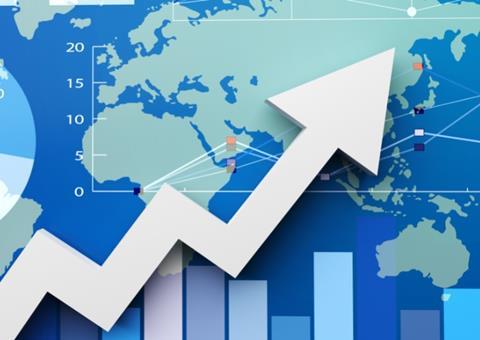Organisations must have a comprehensive view of their supply chain and look for opportunities to bring supply chains closer to consumers
Supply chain confidence has increased across the globe, according to a new Business Optimism Insights report from Dun & Bradstreet.
The report also indicates that businesses are now adopting a growth mindset, as reflected in the overall optimism index.

However confidence that suppliers are able to deliver goods on time has dropped sharply by 6.3%, due to geopolitical tensions, trade disputes, and climate-related disruptions in maritime trade causing higher delivery costs and delayed delivery times.
”Leaders have endured frequent economic disruptions over the past few years and have become more adept at dealing with them; however, they remain cautious of geopolitical conflicts and supply chain disruptions,” said Neeraj Sahai, president, Dun & Bradstreet International.
“This shift in mindset suggests anticipation of additional growth in the forthcoming quarters, albeit with an underlying sense of continued caution.”
Data headlines
- The Global Business Optimism Index increased by 6.6% in Q1 2024 compared with Q4 2023, indicating that businesses in advanced economies now feel more confident about their ability to absorb geopolitical and policy shocks, and are focusing more on growth opportunities.
- The Global Supply Chain Continuity Index fell sharply by 6.3% for Q1 2024 compared with Q4 2023, with suppliers’ delivery time and delivery cost indices both deteriorating. Executives also report that climate-induced disruptions and trade disputes are contributing to decreased optimism.
- The Global Business Financial Confidence Index increased by 10.1% in Q1 2024 compared with Q4 2023; in addition, liquidity is expected to increase across firms of all sizes and businesses are more optimistic about their competitive positioning, particularly large firms with greater resources employed in liquidity risk management.
- The Global Business Investment Confidence Index rose 10.7% in Q1 2024 compared with Q4 2023. This reading reflects a high absolute level of optimism and a growing consensus that major central banks in advanced economies have reached a peak in the current interest rate hike cycle.
- The Global Business Environmental, Social and Governance (ESG) Index increased 7% in Q4 2023 to 61.9, in contrast to a 4.7% decline in Q3 2023, reflecting a positive shift in the commitment of firms worldwide towards sustainability practices. The favorable sentiment towards ESG practices reflects an elevated awareness of sustainability, underscored by the recent agreement among nations at the COP28 conference.
How to use the report
There are a variety of ways risk managers can leverage the insights including to:
- Understand key turning points in the global economy
- Better manage supply chains by identifying potential bottlenecks
- Mitigate risks
- Receive early warning signals on bankruptcies to anticipate financial stress
- Gauge sentiment of which businesses to invest in
- Evaluate of performance implementing ESG initiatives.
What can organisations do to tackle the threats?
Confidence in the resilience of supply chains is facing pressure due to continued geopolitical tensions and climate events. These factors have compelled companies to reroute supply chains, which has led to congestion along transit routes.
Business leaders are experiencing both higher delivery costs and delayed delivery times—a reminder of pandemic-related challenges.
While concern remains over the global supply chain, businesses appear to have a higher tolerance for potential risk and greater adaptability, as a result of their experience managing disruption over the past few years.
“By utilising data and insights, businesses will be empowered to make smarter decisions as they navigate these economic challenges.”
In light of the challenging global economy, businesses will need to have the right knowledge and tools to remain resilient, productive, and innovative, allowing them to find new ways to serve customers and stay ahead of the competition.
Arun Singh, global chief economist, Dun & Bradstreet said: said: “With recent events in the Middle East, businesses should have a comprehensive view of their supply chain, consider supply chain linkages and to look for opportunities to bring supply chains closer to consumers.
“By utilising data and insights, businesses will be empowered to make smarter decisions as they navigate these economic challenges.”




















No comments yet